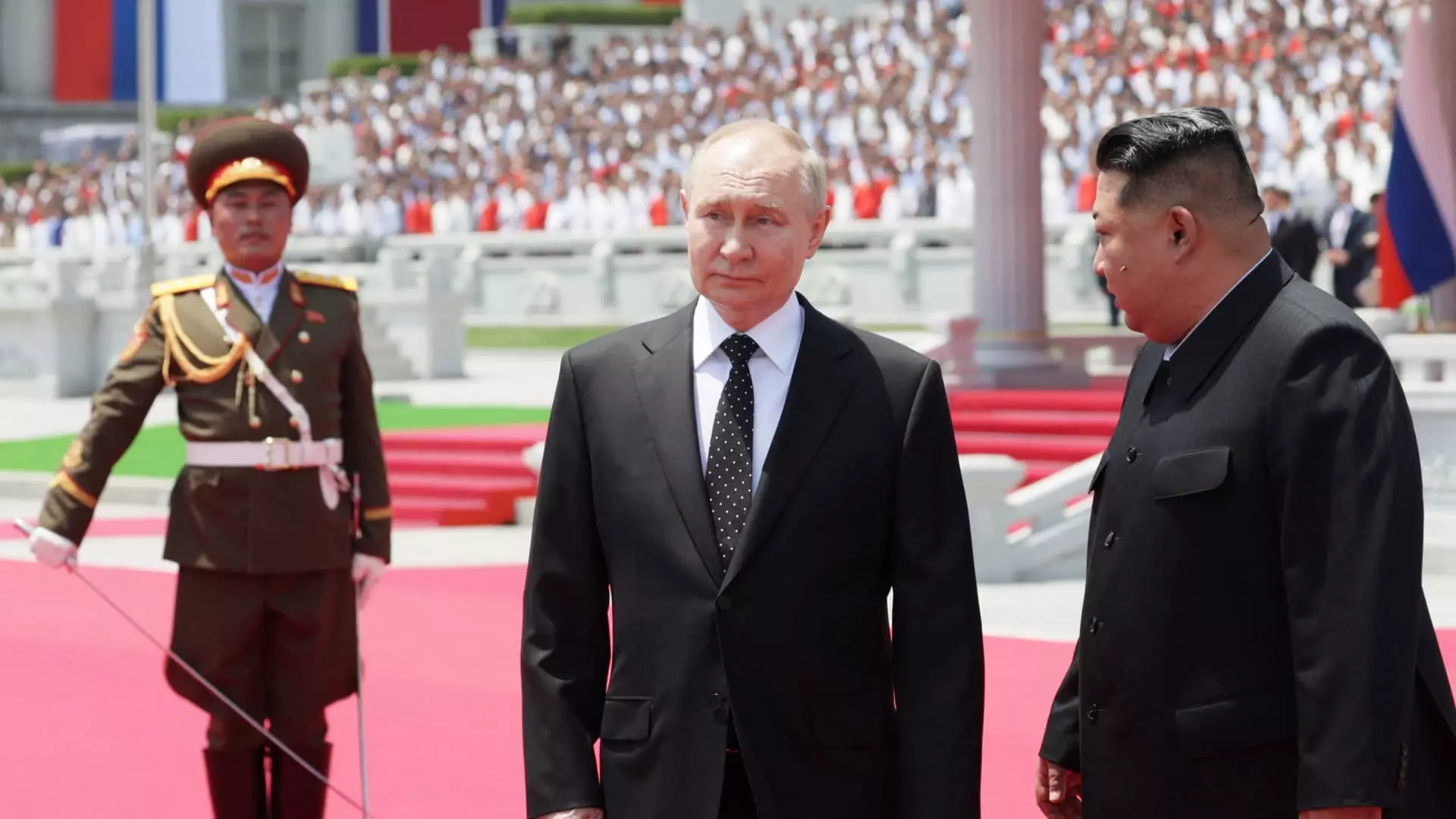The recent signing of a new “comprehensive strategic partnership” between Russia and North Korea has raised concerns among Western officials. President Vladimir Putin’s first state visit to North Korea in 24 years has sparked discussions about the implications of this newfound partnership. Russian state media reported the signing of the partnership, which includes a mutual defense pact, highlighting the close ties between the two countries.
Putin’s Lavish Reception
During Putin’s visit to Pyongyang, he was warmly welcomed by North Korean leader Kim Jong Un with a red carpet greeting and a grand welcome ceremony attended by thousands. Kim expressed full support and solidarity with Moscow, including backing Russia’s “special military operation” in Ukraine. In return, Putin reportedly gifted Kim a new Aurus limousine, an admiral’s dagger, and a tea set, symbolizing the strengthening ties between Russia and North Korea.
Scope of the Partnership Agreement
The strategic partnership agreement signed between Russia and North Korea covers various aspects of cooperation, including politics, economics, culture, humanities, and security. The new document replaces previous treaties and includes provisions for mutual assistance in the event of aggression against either party. Additionally, the agreement opens the door to military-technical cooperation between the two countries, raising concerns among Western countries that heavily sanction both Russia and North Korea.
The close alignment between Russia and authoritarian states like North Korea has raised alarms among Western officials. NATO Secretary-General Jens Stoltenberg highlighted concerns about the potential support that Russia provides to North Korea’s missile and nuclear programs. U.S. Secretary of State Antony Blinken expressed worries about Pyongyang supplying Russia with ballistic missiles and munitions for its war in Ukraine, potentially leading to further arms deals during Putin’s visit.
The exponential expansion of North Korea’s nuclear arsenal and the development of powerful intercontinental ballistic missiles have led to speculations that Russia could become a key supplier of weaponry to Pyongyang. This prospect has raised concerns in the White House, with warnings that any Russian aid to North Korea’s weapon programs could destabilize the Korean Peninsula. The potential repercussions for South Korea are a significant point of concern in light of the growing Russia-North Korea ties.
Challenges for the United States
While the United States has expressed concerns about the implications of the Russia-North Korea partnership, there are limitations to its ability to disrupt the flow of weapons between the two countries without risking direct conflict. The Biden administration’s public attention to the issue does not yet translate into clear policy actions to address the situation. The complex dynamics between Russia and North Korea pose challenges for U.S. efforts to maintain peace and stability in the region.
The implications of the new “comprehensive strategic partnership” between Russia and North Korea extend beyond bilateral cooperation to impact geopolitical dynamics and security concerns at a global level. As Western officials closely monitor the developments in the region, addressing the challenges posed by this partnership will require coordinated international efforts and strategic responses to safeguard peace and stability in the Korean Peninsula and beyond.

Leave a Reply